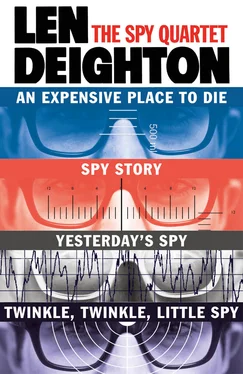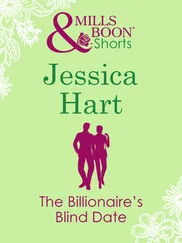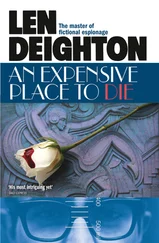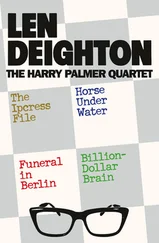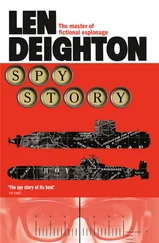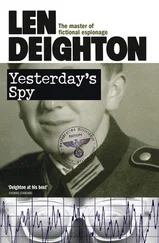A souvenir ashtray featuring the Eiffel Tower becomes the receptacle for a lipstick-traced remnant of one of our hero’s Gauloise cigarettes, plus a Parisian Gendarme’s badge. Further pieces of ephemera are a vintage Folies Bergère programme plus a pair of Paris postcards. The top hat from a Monopoly set is a nod to the elite of Parisian society who are caught in Monsieur Datt’s web, and the dice and ace of spades card tell us that to enter his world is a gamble, which can lead to death. Lastly, the quarter-inch magnetic tape underneath the top hat is of a recording that I produced of Mick Jagger promoting one of The Rolling Stones albums for Radio Luxembourg!
Arnold Schwartzman OBE RDI
Hollywood 2012
LEN DEIGHTON
An Expensive Place to Die
Do not disturb the President of the Republic
except in the case of world war.
Instructions for night duty officers
at the Élysée Palace
You should never beat a woman,
not even with a flower.
The Prophet Mohammed
Dying in Paris is a terribly expensive
business for a foreigner.
Oscar Wilde
The poem ‘May’ quoted hereis from Twentieth Century Chinese Poetry , translated by Kai-yu Hsu (copyright © Kai-yu Hsu 1963) and reprinted by permission of Doubleday & Co. Inc., New York
Contents
Cover
Cover designer’s note
Title Page
Epigraph
Introduction
Chapter 1
Chapter 2
Chapter 3
Chapter 4
Chapter 5
Chapter 6
Chapter 7
Chapter 8
Chapter 9
Chapter 10
Chapter 11
Chapter 12
Chapter 13
Chapter 14
Chapter 15
Chapter 16
Chapter 17
Chapter 18
Chapter 19
Chapter 20
Chapter 21
Chapter 22
Chapter 23
Chapter 24
Chapter 25
Chapter 26
Chapter 27
Chapter 28
Chapter 29
Chapter 30
Chapter 31
Chapter 32
Chapter 33
Chapter 34
Chapter 35
Chapter 36
Chapter 37
Chapter 38
Chapter 39
Chapter 40
Footnotes
France beckons to every lonely misfit, and most novelists answer to that description at some time or another. Many authors have responded to France’s call with enthusiasm; notably during those years between the two world wars when the exchange rates favoured those with US dollars, and Prohibition at home made the noble vintages of France irresistible. But most of those writers were prudent. Writing primarily for English-speaking readers they wrote stories about English-speaking people. Most of those stories were vaguely autobiographical ones about the wealthy English and American visitors with whom the writers fraternized. France provided the mountains and the Mediterranean but the French people in the stories were mostly waiters.
Many of the resulting books were dazzling; some became classics but many of the stories could have taken place in Gloucestershire or Long Island. This was a practical restraint, but writing about France without depicting French people (however inaccurate or untypical the characterizations might be) is like eating a chocolate bar without first removing the wrapper. I am not prudent. I wanted to tell my story with French men and women playing major roles.
It was this need to bring French people into An Expensive Place to Die that led to my including some chapters in the third person. This gave me a chance to show their thoughts and motivation and an opportunity to have action beyond that of the first person. This was not a planned device, it came naturally to the telling of the story and no one criticized it.
No doubt every writer has their own method of writing and this is something that writers enjoy talking about. Most important is whether to write after making a careful plan or to simply invent each new chapter as it comes. Many writers have told me that they don’t know what the end of their books will be when they are writing the first page. The argument against this is the uncertainty that comes of consigning the plot to the vagaries of the writer’s day-to-day temperament. My experience is that there comes a stage in the planning when it is best to start writing and leave some room to develop your characters. Whatever method is chosen, some element of your story is likely to assume an importance beyond your plan. In XPD a character named Charles Stein became that sort of element. He wrestled to take control of my story and nearly did so. Looking back on it, the book was much enhanced by him. For An Expensive Place to Die it was Paris that took on an unplanned importance, and this gives the book an atmosphere rather different to all the other books I have written.
I was a teenager when I first went to Paris. It was not ‘warm and gay’ as the Hammerstein lyric recalled; rather it was ‘old and grey’ as in the lyric that Sinatra was crooning at that time. The war was scarcely ended and I stepped from the train into a dense aroma of Gauloises and garlic. I found myself alone and without contacts standing on the noisy concourse of the Gare du Nord. Packed tight, there were beggars, whores and black-market traders all plying their trades with appropriate subtlety. Heavily burdened infantrymen displayed the silence of the weary while polished and blancoed military police patrols sifted continually through the multitude. My parents had only agreed to this expedition because someone was to meet me and take care of me. That friend was posted away at short notice and I was left to my own devices. Someone put a card into my hand and I plodded along, suitcase in hand, to Place Blanche, a seedy district adjacent to Montmartre. Using the advertisement card, I found a tiny attic room in an old, cheap, threadbare hotel near the Moulin Rouge.
It was all exactly like the little room in which Jean Gabin fought off the flics in that wonderful old film Le Jour se Lêve . All that night I waited for the ‘daybreak’ as I had waited for Santa Claus to arrive on so many Christmas mornings. When light came through the shabby curtains I looked out of the window at the roofs of Paris. This remains one of the most memorable moments of my long, eventful and happy life. I was a teenager, and entirely unsupervised, with this great foreign city laid at my feet. I could scarcely believe my good fortune. I tramped around the city; stood alone at the tomb of Napoleon and inspected the burned-out German tanks that the French were in no hurry to clear away. The fighting had ended but the smell of war lingered. I walked all the way to the Etoile and then back across town to the Place Bastille, only to be sadly disappointed that the grim old prison was no longer there. The Folies Bergère is just for tourists, the concierge at the hotel told me; the Concert Mayol is far more risqué and the girls far, far more naked. I went to the Concert Mayol. I went to the Louvre, where they also had naked girls, to Notre Dame and to that most spectacular of Paris sights – the Sainte Chapelle. I climbed the steep, slippery, and seemingly unending iron steps to get to the top of the Eiffel Tower, and was spattered with red lead primer paint as I passed workers restoring it to good condition.
Although I was in civilian clothes, my youth and London accent caused me to be mistaken for a soldier and I capitalized on this by eating in the military facilities such as the Montgomery Club near the Place de la Concorde. In some places I was eyed with suspicion and twice I was detained on suspicion of being an army deserter. I soon made sure I carried my passport everywhere I went. I must have walked many miles during that time in Paris and by saving my money I was able to afford a lunch at the renowned Tour d’Argent, which had resumed its production of the famous roast duck, prepared at the tableside in a massive silver press.
Читать дальше
